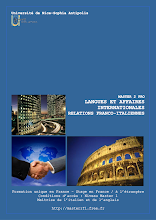 The French Space Agency, CNES, is a public administration with industrial and commercial purpose, created in 1961 and placed under the supervision of the French government. Once the space policy is outlined by the French government, the agency is responsible for implementing and coordinating it, with the help of its own teams but also by means of industrial, scientific, national and international partnerships. CNES beneficiates of public financing, under parliamentary control, and has to report on a regular basis to its board of directors as well as to public control bodies. In 2007 its budget was about 1740 million euros, out of which 1383 millions representing state subventions. CNES has about 2400 employees, most of them senior executives and engineers, spread in 4 centres: Evry, Kourou (the French spaceport), Paris (headquarters), Toulouse.
The French Space Agency, CNES, is a public administration with industrial and commercial purpose, created in 1961 and placed under the supervision of the French government. Once the space policy is outlined by the French government, the agency is responsible for implementing and coordinating it, with the help of its own teams but also by means of industrial, scientific, national and international partnerships. CNES beneficiates of public financing, under parliamentary control, and has to report on a regular basis to its board of directors as well as to public control bodies. In 2007 its budget was about 1740 million euros, out of which 1383 millions representing state subventions. CNES has about 2400 employees, most of them senior executives and engineers, spread in 4 centres: Evry, Kourou (the French spaceport), Paris (headquarters), Toulouse.Thanks to the development of Ariane, attributed to the French Agency, France has currently acquired a high level of know-how in the field of launcher propulsion. Toulouse Space Centre displays a particular capability to design and build orbital systems, meaning the satellite platforms, their instruments and operation. In what Earth observation is concerned, the French space industry is a key player in the optical observation systems. Its capabilities in the field of space telecommunications translate in the integration of a great number of satellites, as part of commercial, national, European and international programs.
Italy
 ASI, Italian Space Agency, created in 1988, is a public national body, responsible for implementing the Italian space policy. The Italian agency depends on the Ministry of Research and receives funding from the Government, which finances the project, development and management of space missions and fixes scientific and practical objectives. ASI manages the space missions on its own or in cooperation with important international space bodies, especially the European Space Agency (Italy is the third contributor, after France and Germany), with NASA and other national agencies. Its headquarters are in Rome and other operational centres are located in Trapani, Matera and Malindi, Kenya. ASI employs about 200 people and its annual budget turns around 800 millions euros.
ASI, Italian Space Agency, created in 1988, is a public national body, responsible for implementing the Italian space policy. The Italian agency depends on the Ministry of Research and receives funding from the Government, which finances the project, development and management of space missions and fixes scientific and practical objectives. ASI manages the space missions on its own or in cooperation with important international space bodies, especially the European Space Agency (Italy is the third contributor, after France and Germany), with NASA and other national agencies. Its headquarters are in Rome and other operational centres are located in Trapani, Matera and Malindi, Kenya. ASI employs about 200 people and its annual budget turns around 800 millions euros.Italy is fully involved in the development of its capabilities in the field of launchers, with the project management of the launcher Vega, assigned to the Italian industry by the European Space Agency. The Italian industry also provides the oxygen turbopump of the cryogenic engine of Ariane. Italy is also very active in the field of earth observation by means of radars and displays a strong capability to build satellite platforms. After having contributed to various elements of the International Space Station, Italy expresses its interest in the Mars exploration programs.
The relationships between the political authorities and the space industry are carried out through the space agencies. As we have seen, they have the necessary technical skills to forward space programs to political decision takers and the necessary technological and legal competences to deal with the space industry. Together, the agency and the industry represent the productive category of the space sector.



Aucun commentaire:
Enregistrer un commentaire